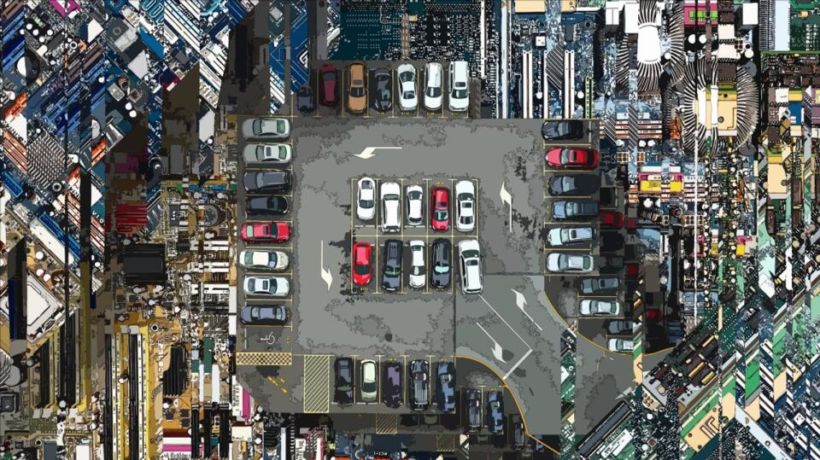The smart city of the future is materialising in the parking garage of an office building in Munich. With a new test program powered by artificial intelligence, or AI, the parking garage can communicate with the drivers who use it. It can tell them when the garage is getting crowded and increase its pricing based on demand, suggest drivers use another garage, and even reward them for not driving in to work at all.
The trial project is being led by UK.-based Fetch.ai and Munich-based blockchain company Datarella and was just launched at one of the central Munich offices owned by Connex Buildings. The goal is to control the pricing and use of the building’s parking spaces dynamically, and to disincentivise people from driving to work by rewarding them with public transit passes for all the time they aren’t using the parking garage.
“It could say okay if you park closer, you’re going to be charged more; if you park farther away, you’ll be charged less,” says Humayun Sheikh, CEO of Fetch.ai. “We reward you for doing certain actions and we discourage you from doing certain actions.”
Sheikh says that if the trial program is expanded to parking garages citywide, it could cut car usage by 10% annually, resulting in a reduction of more than 37,000 tons of CO2 emissions, which is equivalent to the emissions from the annual energy use of nearly 4,000 homes.
Putting a price on parking based on demand has been shown to reduce vehicle distance traveled and greenhouse gas emissions in San Francisco, where a demand-responsive pricing system has been in place since 2017. When the price of parking reflects its relative scarcity, it can signal to people that if they do decide to drive, it’s going to cost them. When fewer people have the option for free parking, fewer choose to drive, reducing congestion and shifting traffic flows to less busy areas. “It should make traffic and congestion management much more efficient,” Sheikh says.
Free parking has been shown by researchers like Donald Shoup, a professor of urban planning at the University of California, Los Angeles, to have high costs for cities in terms of congestion, greenhouse gas emissions, and time spent driving around looking for parking. One meta-study of traffic behaviours found that drivers cruising for parking accounted for an average of 34% of the traffic in downtown areas.
Fetch.ai’s approach aims to streamline the process of finding a parking spot using an app that drivers can set to automatically book parking spaces when available, based on predetermined price and location settings. The AI technology is based on a computer science concept known as a multi-agent system, with distributed and specialised computer programs, or agents, that perform certain tasks autonomously. In communication with each other, they can quickly sort out complex scenarios collectively, without the need for some mega, all-knowing database.
In the Fetch.ai parking trial, the agent in the parking garage would be able to tap into a camera system that analyzes the available spaces and sets pricing accordingly. The agent in a person’s app would be able to know that, for instance, the person will need to drive into the office this morning and will negotiate directly with the parking garage’s agent to determine the price to park based on demand.
“The agents tell each other when it’s busy and when it’s not. So if you want to park in a place, it will be able to tell you the next five hours are open,” Sheikh says. “And then there are 10 other agents in other places [throughout the city], and all of them can collectively learn if there is congestion in the area or not.” With the system’s pricing and rewards, use of this single garage can be more tightly controlled than if it were either free or charging one rate that was agnostic to demand. But one parking garage can have only so much impact.
The goal, Sheikh says, is to scale it up. For a complicated system like a city, the distributed functions of a multi-agent system could be a simpler way of injecting the kind of “smartness” that might otherwise require an intense and centralised database and millions of sensors. This approach, Sheikh argues, could make smart city infrastructure much easier to implement.
“Why we still haven’t [built smart infrastructure] is [because] the cost of deploying [it] is quite a lot,” he says. “What we’re proposing is a retrofit solution. You don’t actually need to have sensors everywhere.”
Sheikh aims to expand the trial to other parking garages throughout Munich in 2021. With a few cameras in parking garages and apps installed in drivers’ phones, he says this multi-agent system can begin to autonomously price parking in a way that dramatically reduces city congestion. One parking garage won’t be enough to make a huge difference, but it could be the start of a much smarter way to park.
____________________________________________________________________________________
Article originally published on fastcompany.com







